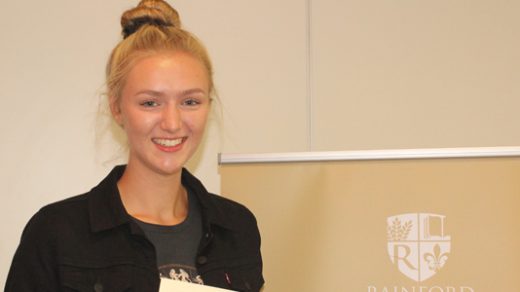Education figures react to the latest lockdown and impact on schools

Following the Government’s announcement on Monday 4 January 2021, Educate reached out to headteachers and senior leaders to find out how they are feeling about the new lockdown and some school closures.
Mr Stephen Brierley headteacher of St Margaret’s Church of England Academy in Aigburth, Liverpool.
As I write, Gavin Williamson has just announced that this summer’s GCSE, AS- and A-level exams have been cancelled. Instead, teachers will (again) be providing centre-assessed grades.
To be honest, I have mixed feelings about the announcement.
On the one hand, it was probably inevitable, given schools’ latest partial closure, and given ongoing concerns about the safety of having hundreds of students in a confined space for a few hours.
But because it was inevitable, I was hoping that ‘Plan B’ might have been a bit more developed. As it is, many students, parents, teachers and leaders will now have a lot more (perfectly legitimate) questions about how things are going to work out. To anyone reading who has such questions – you have my sympathy; I have those questions too; we’re all in the same boat!
So what should happen now? I’d like to offer two observations.
Firstly: exams aren’t perfect. There’s an element of chance in what questions come up. Students are not always in the best place to do their exams (I remember once working with a Year 11 student who had witnessed a road traffic accident on their way to an important GCSE exam). Marking exam scripts is not a completely precise science. In many ways, to misquote Churchill: “Exams are the worst form of assessment – except for all the others”. Last summer certainly gave me cause to reflect that exams have their advantages as well as their disadvantages!
So whatever is put in place now, I’d like to think that there could be some way, even if only at school level, for students to be given some sort of opportunity to demonstrate what they’ve learned. The outcomes of any such exercise would need to be interpreted very carefully, of course – some students have endured prolonged periods of absence from school, through no fault of their own – but such an exercise could add an extra element of objectivity to mitigate any risk of the process being tainted by subjectivity. Maybe it won’t be possible to do that this year. But I’d like to think it would be considered.
Secondly: we need to be very clear what this year’s GCSE grades tell us. I was a bit concerned to hear some talk, after Gavin Williamson’s announcement, that students should receive grades that reflect their efforts. GCSE grades should reflect learning, not effort. I put in a considerable amount of effort when I ride my bike – but that doesn’t mean I’m a particularly fast rider – I’m certainly not! Granted, for most people, learning requires significant effort; but the effort itself isn’t enough – you’ve got to make the effort in a way that ensures the learning sticks. How best that happens is a gloriously individual thing. For me, silly little mnemonics helped me remember my ‘O’-level History content (that ages me!); for others, spider diagrams or flash cards may work better. Working out what’s best for each individual is one of the many joys of teaching! But let’s not kid ourselves that those who’ve tried hardest should get the top grades: hard work has to be effective for it to count. Those who have learnt the most, who’ve committed it to their long-term memories, and who can apply it – they’re the students who should get the top grades. The two aren’t quite the same.
So those are my two requests. But however things pan out, our young people need – indeed, we all need – rapid clarity on what’s going to happen, and a fair process that enables everyone to make the most of a truly horrid situation. And of course, we need good leadership of the process too: we saw how important that is last summer.
Above all, we desperately need to get this right. The future of our young people is too important to get wrong.
Gavin: over to you.
Mrs Ania Hildrey, headteacher of Abbot’s Lea School in Woolton.
How will the latest lockdown affect the Abbot’s Lea School community?
As the headteacher of a special school, we are expected to be open to all students, as 100% of our population is classed as vulnerable by the governmental guidance. Regrettably, this is simply not possible, when concurrently, the health advice is for the staff with complex underlining health conditions is to shield. Our workforce, whilst wonderfully committed, ever-willing to go the extra mile and hard-working well beyond the definitions of their contract, are all human, too and personally affected and so, simply cannot render a reliable service at this extraordinary time.
As a result, we had to risk assess our school operation and make some really difficult decisions about who, amongst all of our students, must be offered onsite provision as otherwise, their progress might be seriously inhibited; in fact, some may regress beyond what would be seen to be acceptable.
For a school with 271 students, age 3-19, we have prioritised the following groups for our onsite provision:
1. Children of essential key workers, as defined by the central government
2. Children currently on Child Protection Plans (CP, section 47)
3. Children currently classed as Child in Need (CiN, section 17)
4. Children who are Looked After (LAC)
5. Children currently subject to Early Help Assessment Tool (EHAT)
6. Children eligible for Free School Meals (FSM)
7. Students in our Early Years and Key Stage 1 (the youngest of our learners)
8. Students in our Nurture Provision (most complex special educational needs requiring therapeutic support)
9. Students completing internal Supported Internships (students whose employability support is essential at this point in time for them to secure best future)
All other students will receive twice daily direct live interactive teaching via Zoom and will also have access to a wide range of non-interactive learning via our platforms.
All students, families and staff will continue to have access to our Multidisciplinary Team support, including direct therapy, advice and guidance. Additionally, we support our staff and their families with Employee Assistance Programme which offers 24/7 advice, support, guidance and discreet therapy. This service is free of charge on the point of access for our team and their loved ones and offers wide-ranging services, including financial advice.
In short, it is tough, really tough, but we are doing all that we can to continue working with all students – some onsite and some remotely – in order to ride out this storm….
How will it impact both younger and older students with autism?
The impact of COVID-19 as a whole, this (and previous) lockdown specifically, and the interruptions to reliable, predictable, and socially-enriching direct delivery is difficult for everyone.
There is already a professional and societal consensus about our commitment to the key workers (whether NHS staff or many, many others) and our acceptance of the widening impact for those who are deemed socio-economically disadvantaged. There is another group though – and I speak from my own experience as a headteacher and a mother – there are also major challenges for those who can be classed as money “rich” but time poor. As a headteacher, I know I spend more hours of my life serving my students than I do my own children; this will be the reality for all essential key workers….
All of the above groups experience circumstances that challenge parenting. This, in turn, impacts our children – no matter what age they are – at the time when we feel torn, are exhausted and just hope to return to some kind of normality.
Arguably, challenges are more complex, as your child’s complexity of needs increases. I would not, however, say that all children with EHCP are more complex than all children without one.
Every person is different, every family’s circumstances are different and every child copes differently with the reality around them.
All we need to do is to seek to understand, seek to help and seek to always look to improve and diversify our ways of working to make the child we focus on thrive.
Dr John Patterson, principal of St Vincent’s School – a specialist school for sensory impairment and other needs.
Do you think teachers should be given priority for the COVID-19 vaccine? If so, how would this benefit your school?
Across government updates and news reports, reference has been made to the ‘battle’ against COVID-19. Decisions on who should be given ‘priority’ for vaccinations rests in this context, on who is and will be in the frontline trenches facing our common enemy, i.e. the virus itself.
Our quite incredible NHS are ‘hand to hand’ at that front, as are our wonderful Merseyside Police, both put themselves at risk and simultaneously face those who ‘fraternise’ with the enemy by not keeping to the rules, opening thus new battle fronts.
Teachers are also part of the frontline. Every teacher can tell you what happens when a child comes into school with an illness and how rapidly it spreads. Every teacher can tell you how at the very least, their first four or five years in school is a continued cycle of illness catching the relentless procession of ‘bugs’ children bring into classrooms. If children can carry coronavirus, and no matter what sanitising measures are in place, just as NHS staff, police officers and ‘people facing’ professions, teachers will catch it and pass it.
If we value teachers as part of the frontline, keeping the country moving forwards, and in unprecedented times protecting the wellbeing of future generations, the vaccine should be available to them. Certainly, having enough well teachers to teach benefits school… but school exists to serve and give benefit to pupils, parents and together with ‘frontline troops’, our connected communities.
How do you think schools can function safely in the future? E.g. continual routine testing for all students…
There is no one hundred per cent safety assurances schools can offer, and we must be real about this. We can, however, do as much as possible by operating common sense, keeping up to speed with the guidance and research, and working collaboratively. Routine testing and sanitisers are all good practice and to be encouraged; we know in the immediate and for the best part what we should be doing.
As the country looks at the overall impact of the virus and future safety; a way forward would be for future Government offices to have a closer relationship with those groups in the frontline trenches, and listen to them…. we really are the ones who advancing together, have a better view of the barbed wire we face.
Mrs Catherine Twist, headteacher of St Cuthbert’s Catholic High School in St Helens.
How do you feel about teachers’ predicted grades/assessments replacing GCSE exams this summer? What is the overall feeling amongst your teaching staff? How do you think students should/can be assessed given all the circumstances?
On Monday 4 January the Education Secretary told Year 11 students that their GCSE exams were cancelled. My mind flashed back to March last year when the same message was given to another cohort of young people who have spent the vast majority of their young lives building the foundations of their education in preparation for these exams which would then take then to the next stage in their careers, whatever that might be.
We were determined then and are determined now to ensure that our students are not forgotten, ignored or disadvantaged in their futures. Our Year 11 students have not stopped working since September and in fact teachers report that they are working harder than ever to complete their studies and to prepare for a series of assessment tasks throughout the remaining few months of Year 11.
Every assessment will build up a portfolio in subjects that will inform the final grades to be submitted to the exam boards. Our fantastic careers programme is ensuring that all students have applied for post-16 courses or training opportunities for September.
We know it has been a real rollercoaster for these students and all we can say is hang on in there Year 11! You’ve got this and the whole of our teaching and support staff are here for you.
James Madine, chief executive officer at Progress Schools
How are you feeling about the latest lockdown and school closures?
First and foremost, it is absolutely right that decisions are taken to ensure the health, wellbeing and safety of all is safeguarded as much as possible and clearly the information which we all see every evening from the medical experts, scientists and politicians shows us that the situation is going to get tough.
From the perspective of schools and the wider educational sector, I believe that we have two key roles to
play; firstly, using our experiences of previous lockdowns and a turbulent first term littered with isolation bubbles, we can ensure that our ability to switch a remote learning platform goes to the next level and the quality of intervention, teaching and learning is better again and secondly, we must ensure that we support the mental and physical wellbeing of our students, parents, staff and wider communities alike.
We have to ensure that every child is not lost in the panic and chaos and that the educational and pastoral needs of every child continues to be met.
How will the latest lockdown affect the Progress Schools community?
Following the initial announcement by the Education Secretary that non-exam year groups would be taught remotely upon the return this week, we were putting the messages out to our students, parents and staff that as all of our students are considered vulnerable, we will be remaining open and operating in the usual COVID-secure way for all students and all year groups. However, following the Prime Minister’s announcement on Monday evening, some parents and carers were understandably reluctant to allow their child to attend school so we quickly ensured that a remote programme of learning was readily accessible.
I am sure that I speak for all leaders across the wider sector but I could not be prouder of the efforts of the Progress Schools team in distributing laptops, food parcels, planning an online programme and face-to-face programme of lessons in the space of 24 hours – and that is without training and getting ready to be able to test staff and students who may be asymptomatic from next week!







